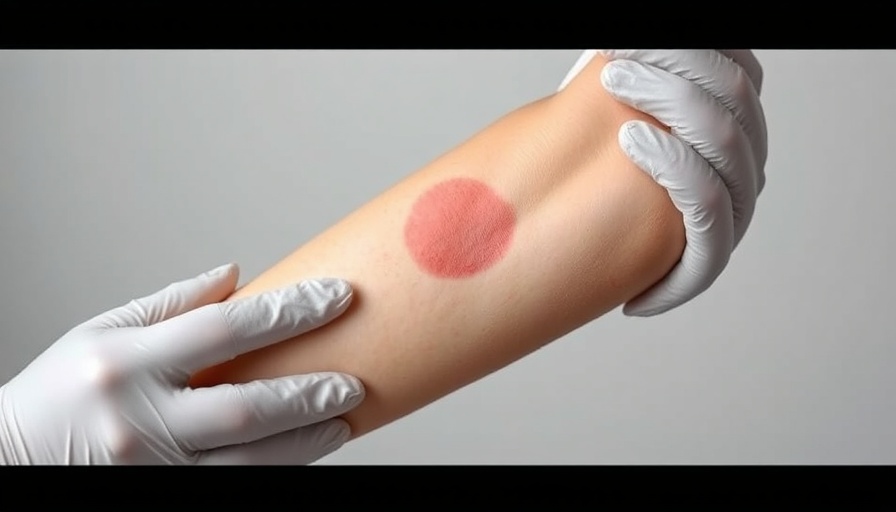
Understanding Psoriasis: A Common Skin Condition
Psoriasis is a chronic autoimmune condition that speeds up the life cycle of skin cells, leading to an accumulation of cells on the skin's surface. This overproduction results in the characteristic itchy, red patches often covered with thick, silvery scales. It affects not just the skin but can also have systemic effects on other body systems, including the joints.
Breakthrough Discovery: Targeting the SSAT Enzyme
Recent research has highlighted the role of the SSAT (spermine/spermidine acetyltransferase) enzyme in psoriasis. This enzyme is involved in polyamine metabolism, which influences skin cell proliferation and differentiation. By targeting SSAT, scientists believe they can reduce the excessive skin cell growth seen in psoriasis, potentially leading to new therapeutic options for patients.
The Science Behind the Treatment: How Does It Work?
The mechanism is based on the observation that inhibiting this enzyme may improve skin health by reducing inflammation and allowing for better skin cell management. This insight opens doors to developing drugs that can specifically modify SSAT activity, enhancing current treatment regimens that often rely on immunosuppressants or anti-inflammatory medications.
Impact of Gut Health on Psoriasis
Moreover, studies suggest that gut health plays a significant role in skin conditions, including psoriasis. A healthy digestive tract may help mitigate the severity of skin symptoms. For parents dealing with children suffering from psoriasis, a diet rich in fiber, probiotics, and skin-friendly nutrients can support overall skin health.
Nutrition's Role in Managing Psoriasis
Incorporating collagen-rich foods into your family's diet may further improve skin conditions. Foods like fish, chicken, eggs, and bone broth can help enhance skin elasticity and reduce aging signs. Additionally, pairing these with healthy smoothies for clear skin, which might include spinach, berries, and nut-based milks, can ensure that your family receives a wealth of vitamins and minerals essential for vibrant skin.
Practical Tips for Parents Managing Psoriasis
- Hydration is Key: Encourage kids to drink plenty of water, as hydration is vital for skin health.
- Consult Your Dermatologist: Regular check-ups with a dermatologist can keep treatments effective and tailored.
- Monitor Diet: Keep a food diary to spot any potential triggers. Note how certain foods affect skin conditions.
- Healthy Skin Foods: Include a variety of fruits and vegetables that promote collagen production and skin repair.
What Lies Ahead: Future Research Directions
Looking ahead, the potential for SSAT-targeting therapies could reshape how we approach psoriasis treatment. Researchers are optimistic that primary care providers will soon have more effective tools to help patients manage their skin conditions. For families navigating psoriasis, staying informed and engaged in research can make a significant difference.
Concluding Thoughts: How to Support Your Family
Providing support for a family member dealing with psoriasis involves understanding the condition, recognizing dietary influences, and fostering regular contact with healthcare professionals. As research continues to uncover the complexities of skin health, parents can play a vital role in their children’s well-being by encouraging healthy habits and ensuring they get the required medical support.
To make positive impacts on skin health, consider integrating more healthy skin food options into your family's daily meals. Collaborative efforts around meals can build family bonds while improving skin health dramatically.
 Add Row
Add Row  Add
Add 




 Add Row
Add Row  Add
Add 

Write A Comment